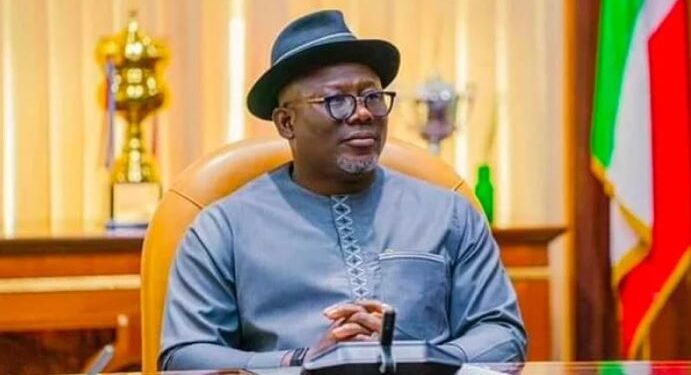Delta State Governor, Sheriff Oborevwori, has dumped PDP for APC.
Newsone Nigeria reports that Sheriff Oborevwori, the governor of Delta State, South-South Nigeria, has officially defected from the Peoples Democratic Party (PDP), Nigeria’s main opposition party, to the ruling All Progressives Congress (APC).
The announcement was made following a closed-door meeting at the Government House in Asaba on Wednesday.
The Governor’s Chief Press Secretary, Sir Festus Ahon, confirmed the decision, saying it was reached after “wide consultations with political stakeholders and in the interest of Delta’s long-term development.”
Charles Aniagwu, the state’s commissioner for information, announced the defection on Wednesday, saying that the decision received unanimous backing from PDP leaders in Delta, and driven by the shared goal of promoting unity, enhancing security, and advancing development in the state.
The Delta state commissioner for information said the leadership of the PDP in the state came to an “inevitable conclusion” that leaving the party was the only way to ensure political stability.
“The decision was taken to build the bond of love that have existed in our state, to further advance the cause of security and welfare of our people, and to a very large extent, ensure that development in Delta; because every politics is local,” Aniagwu said.
“And in taking that decision we came to the inevitable conclusion that moving out of the PDP is very very necessary for us to be able to collaborate with our kith and kin and build that state that every Deltan will be proud of.”
The commissioner claimed PDP in Delta has lost its flavour and can no longer serve the aspirations of its people.
“We believe that what is happening and the state of the PDP is akin to that palm wine whose taste has changed and there was a need for us to change the drinking pattern,” he said.
Newsone reports that Sheriff Oborevwori, who emerged victorious in the 2023 governorship election under the PDP platform, was received by senior APC officials in what political analysts are already describing as a strategic realignment with significant implications ahead of the 2027 general elections.







